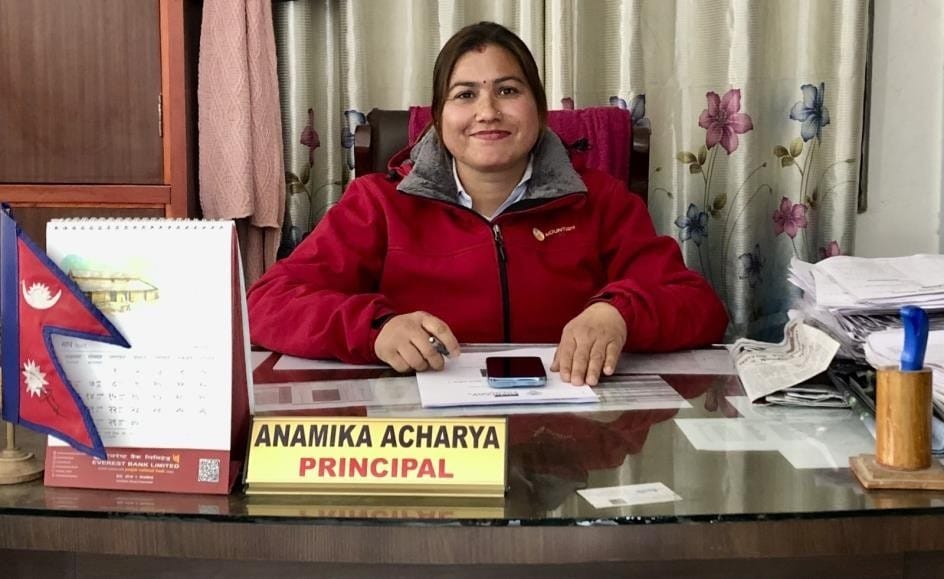Anamika Acharya, female headmaster of the Kalika Sharan School
Anamika has been occupying this position for three years. She followed her father’s path, as he was also a headmaster of a government school and a political leader. Unfortunately, Anamika faced both personal and professional challenges to follow her dream to become a female leader. Indeed, “societal judgements often weigh heavily on women in leadership, and I have experienced people trying to bring me down simply because I stepped into a position of authority”. Despite the obstacles, which involved judicial process for her rights, she finally got the professional position she studied for, and she deserved. Additionally, being a female headmaster can be challenging sometimes due to gender expectations: “I was straightforward about the essential equipment and facilities the school lacked […]. Speaking up about these issues was necessary, but it also brought resistance; some people are uncomfortable with women who assert themselves and demand change”.
Anamika could never have accomplished all of this if she hadn’t self-esteem in the first place. According to her, “self-esteem is crucial for women, especially young girls, as it shapes their confidence, decision-making, and overall well-being. When young girls have high self-esteem, they are more likely to pursue their goals, to resist peer pressure, and to overcome challenges”. As a headmaster, she is trying to encourage self-esteem from an early age, either through positive reinforcement, mentorship or representation. This is a priority because “when a women feel confident in themselves, they are more likely to challenge stereotypes, to advocate for their rights, and to inspire others to do the same”.
She is now considering herself a good leader, as well as trying to set an example for all her students, notably by encouraging them to take initiatives, to speak up for their ideas and to believe in their dreams. Without diminishing the men and their traditional role in the society, she considers that “it is crucial for women to take on leadership roles in communities and schools because they bring diverse perspectives, foster inclusivity, and serve as role models for young students – especially girls”.
Prepared by:
Calypso Chosson
Project “Youth We Can!“
ESC Volunteering 2024/25

